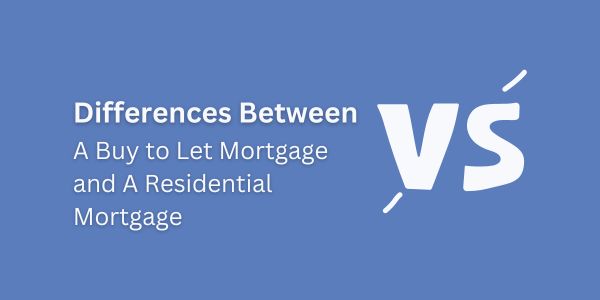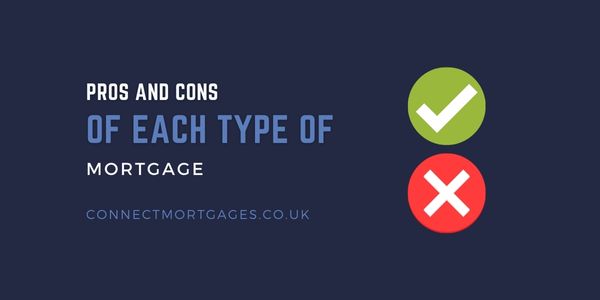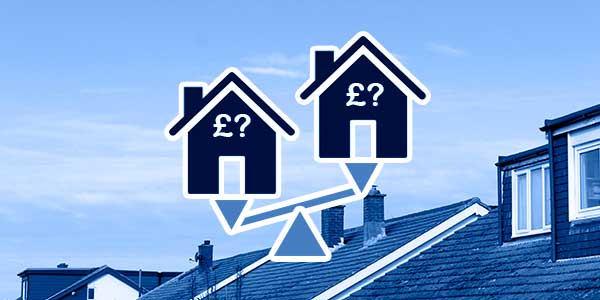Purchasing a property is one of the most significant financial decisions many people make. However, your mortgage type can drastically impact your long-term plans and costs. This guide explores the differences between buy-to-let (BTL) and residential mortgages, helping you determine which option best suits your needs.
What is a Buy-to-Let Mortgage?
A buy-to-let mortgage is specifically designed for individuals who want to purchase property as an investment to rent it out. Unlike residential mortgages, this type of loan often requires a larger deposit and higher interest rates. Despite this, it offers the potential to generate rental income, making it attractive to investors.
Who Should Consider a Buy-to-Let Mortgage?
Buy-to-let mortgages cater to landlords or property investors who plan to let properties to tenants. These mortgages are not intended for owner-occupiers. Therefore, individuals seeking to expand their property portfolio or earn rental income may find them appealing.
Eligible Properties
BTL mortgages can be used for residential properties, including flats and houses. However, lenders may impose restrictions based on property types or conditions.
What is a Residential Mortgage?
A residential mortgage is tailored for individuals looking to buy a home to live in. These mortgages typically require smaller deposits and offer lower interest rates compared to buy-to-let loans. They are ideal for first-time buyers or homeowners moving up the property ladder.
Who Should Consider a Residential Mortgage?
Residential mortgages suit individuals or families looking to secure a primary residence. They focus on affordability and stability, with repayment options structured around regular salaries or incomes.
Eligible Properties
These mortgages cover most residential properties, from flats to detached houses, provided they are used as personal residences.
Differences Between a Buy to Let Mortgage and A Residential Mortgage

Key Differences Between Buy-to-Let and Residential Mortgages
- Purpose – Buy-to-let mortgages are for rental income, while residential mortgages are for personal living.
- Deposit Requirements – BTL mortgages often require deposits of 25% or more, whereas residential mortgages may only require 5-10%.
- Interest Rates – Higher rates are common for BTL loans due to perceived risks.
- Tax Implications – Landlords may face additional taxes, including income tax on rental earnings and capital gains tax upon selling.
- Repayment Structure – Many BTL mortgages operate on an interest-only basis, while residential loans typically combine interest and capital repayments.
- Insurance – BTL landlords need specialist landlord insurance, whereas residential buyers require standard home insurance.
Pros and Cons of Each Mortgage Type
When deciding between a Buy-to-let mortgage and a residential mortgage, it’s essential to understand the pros and cons of each.
Buy-to-Let Pros:
- Potential for rental income to cover mortgage payments.
- Long-term property value appreciation.
- Tax-deductible expenses related to property management.
Buy-to-Let Cons:
- Higher deposits and interest rates.
- Additional costs, including maintenance and insurance.
- Risks of property vacancies leading to income loss.

Buying a property is likely the most significant investment (with ample rewards) you’ll make in your lifetime.
Residential Pros:
- Lower deposits and interest rates.
- Builds equity through mortgage repayments.
- Suitable for personal long-term stability.
Residential Cons:
- No rental income potential.
- Maintenance and repair responsibilities fall on the owner.
- Potential financial strain from insurance and utility bills.
Choosing the Right Mortgage
Selecting the appropriate mortgage depends on your long-term goals. A buy-to-let mortgage may be ideal if you seek passive income and are willing to manage tenants. However, a residential mortgage could be the better choice if stability and personal occupancy are your priorities.
Tax and Legal Considerations
Buy-to-let mortgages come with distinct tax obligations. Rental income is taxable, and landlords must comply with UK tax regulations, including a 3% stamp duty surcharge on second properties (HMRC, 2024). Conversely, residential mortgages, such as first-time buyer schemes, may sometimes qualify for tax relief.
Understanding the differences between buy-to-let and residential mortgages is crucial for making informed financial decisions. While buy-to-let mortgages provide income opportunities, they require higher upfront investments and come with added risks. Residential mortgages, on the other hand, offer affordability and stability for those seeking personal homes. Always consult a financial advisor or mortgage broker to assess which option aligns with your goals.
FAQs
Q1: Can I switch from a residential mortgage to a buy-to-let mortgage? Yes, but you must inform your lender and may need to remortgage under different terms.
Q2: What happens if I rent out my home with a residential mortgage? Doing so without lender permission may breach the terms of your loan, potentially leading to penalties.
Q3: How do lenders assess eligibility for each mortgage type? Lenders consider income, credit scores, and projected rental income for BTL mortgages, while residential loans focus on salary and affordability.
Q4: Are buy-to-let mortgages available to first-time buyers? While possible, it’s rare, as lenders often prefer applicants with prior property ownership experience.
Q5: Can I claim tax relief on a buy-to-let mortgage? Landlords can deduct some expenses, such as property management and maintenance costs, from their taxable income.
Thank you for reading our “Buy To Let Mortgage vs Residential | The Things To Consider. ” Stay “Connect“-ed for more updates soon!







